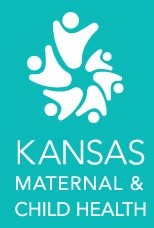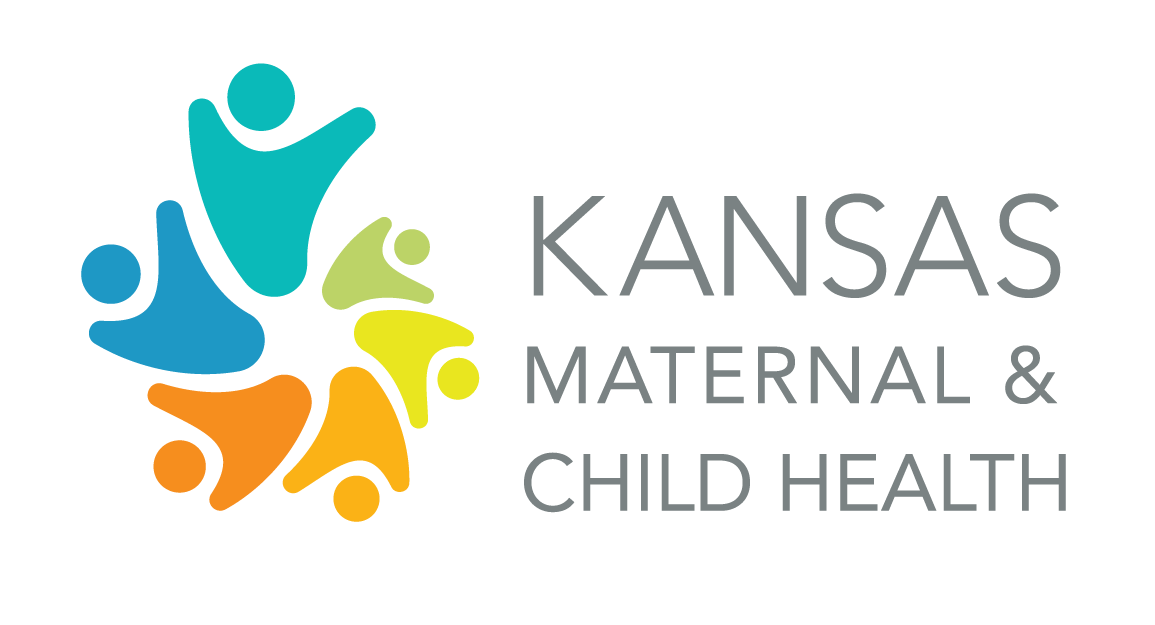As health care providers and educators we all too often feel the pain of parents and loved ones as they experience heart breaking loss due to SIDS and other sleep related infant deaths . With October being recognized as National SIDS Awareness Month, let's take this opportunity to provide additional focus and education on SIDS risk factors and the prevention of sleep related deaths, many of which are predictable and preventable. . . and let's begin to close the gap in racial and socioeconomic disparities related to this topic.
Included in this action alert, you will find: statistics; tips for preventability; provider and patient resources, including provider training opportunities and resources specific to SIDS Awareness Month and pre-made social media posts. Each graphic coincides with a corresponding messaging found in the "Social Media Graphics and Messages" section below. We hope that you find these resources helpful and will put them to good use!
Please feel free to share this action alert and its resources with your community partners to help spread this messaging to a broader audience. Thank you so much for all you do to educate families and protect our babies!
View the full action alert PDF, share the Social Media Graphics and Messages below, and check out the list of Resources!
Social Media Graphics and Messages
1. Breastfeeding Reduces the Risk of SIDS
Caption: Providing breastmilk to your baby for two months has been shown to significantly reduce the risk of Sudden Infant
Death Syndrome (SIDS), whether you’re breastfeeding exclusively or combination feeding! Learn more at publications.
aap.org/aapnews/news/13812. #SIDSAwarenessMonth
Find Local Breastfeeding Resources: http://ksbreastfeeding.org/resources/
Source: AAP News & Journals
2. Share a Room - Not a Bed!
Caption: One of the easiest ways to help protect your baby from Sudden Infant Death Syndrome (SIDS) and suffocation
is providing them with their own safe sleep area. Safety approved cribs, including pack-and-plays with a bassinet
insert, can be easily placed within arm’s reach of your bed. Just remember the ABCs of Safe Sleep! A-Alone, B-Back,
C-Crib. Learn more at marchofdimes.org/baby/safe-sleep-for-your-baby.aspx. #ClearTheCrib, #SafeToSleep,
#SIDSAwarenessMonth, #SafeInfantSleep
Source: www.marchofdimes.org/baby/safe-sleep-for-your-baby.aspx
3. Know and Show a Safe Sleep Environment!
Caption: Helping protect your baby from Sudden Infant Death Syndrome (SIDS) and suffocation is providing them with their own safe sleep area. Sleep surfaces should be free of clutter like bedding, toys, and bumpers, and your baby should always sleep on their back. Just remember the ABCs of Safe Sleep! A-Alone, B-Back, C-Crib. Check out this informative video demonstrating portable crib assembly and safe sleep guidelines: www.kidsks.org/safe-sleep. #ClearTheCrib, #SafeToSleep, #SIDSAwarenessMonth, #SafeInfantSleep
4. Vaccines and SIDS
Caption: Vaccines not only protect your baby against infectious diseases, but they can help reduce the chance of Sudden
Infant Death Syndrome (SIDS),too! Studies show that just by following your child’s recommended immunization
schedule you can reduce their risk of SIDS by as much as 50%. Learn more at: ivaccinate.org/vaccine-safety/.
#SIDSAwarenessMonth
Source: https://ivaccinate.org/questions/is-there-a-link-between-sids-and-vaccines/
5. Smoking Isn't Just Bad for Your Health
Caption: Smoking during pregnancy and after the birth of your baby can affect their physical development, lung function, and increase their risk for Sudden Infant Death Syndrome (SIDS). And it’s not just cigarettes-nicotine from vapes and other smokeless tobacco can be just as harmful. Get help to quit smoking today at: kansas.quitlogix.org/en-US/. #SIDSAwarenessMonth
Source: www.cdc.gov/tobacco/data_statistics/fact_sheets/
secondhand_smoke/health_effects/index.htm
Get help to quit smoking today! https://kansas.quitlogix.org/en-US/
6. Birth Risk Factors
Caption: While there is no known cause for Sudden Infant Death Syndrome or SIDS, there are risk factors. These can include
babies born early (prior to 37 weeks) and babies with low birth weight (5lbs 8oz or less). These birth related risk
factors make your baby especially vulnerable to SIDS. Talk to your provider about protective factors and learn more at
KidsKS.org/safe-sleep. #SIDSAwarenessMonth
Find Local Breastfeeding Resources: http://ksbreastfeeding.org/resources/
Source: AAP News & Journals
7. Safe Sleep
Caption: It takes a village! It is completely normal to rely on caregivers, like family members or babysitters, to watch your infant.
Don’t assume they know what you know about your baby’s safety, including safe sleep. The ABC’s of Safe Sleep are
an easy way to communicate safety to your family support system. For example, baby should be Alone on their Back
in a clutter-free Crib. Learn more at safesleepacademy.org/grandparents-safe-sleep. #ClearTheCrib, #SafeToSleep,
#SIDSAwarenessMonth, #SafeInfantSleep
Source: www.marchofdimes.org/baby/safe-sleep-for-your-baby.aspx
8. Siblings
Caption: Siblings should share a special bond, not a sleep surface. When a new baby arrives, older siblings may be excited or curious to be with their new sibling. Sharing a sleep space with an infant is not safe. Learn more about safe sleep practices: safesleepacademy.org/siblings-and-safe-sleep. #ClearTheCrib, #SafeToSleep, #SIDSAwarenessMonth, #SafeInfantSleepwww.kidsks.org/safe-sleep.html
9. Racial Disparities
Caption: Racial disparities tragically impact infant mortality. Some racial/ethnic groups are at higher risk for SIDS than others.
Black/African American and American Indian/Alaska Native babies are at higher risk for SIDS than are White, Hispanic
and Asian/Pacific Islander babies. Enhancing systems of care, improving access and supporting families through
building a more diverse healthcare workforce can improve outcomes for communities. Learn more about racial
disparities in infant and maternal health: americanprogress.org/article/eliminating-racial-disparities-maternal-infant-
mortality. #SIDSAwarenessMonth
Source: https://ivaccinate.org/questions/is-there-a-link-between-sids-and-vaccines/
10. Vaccines and Fevers
Caption: Infants who have had an illness with a high fever within the past 2 to 3 weeks are at higher risk for Sudden Infant Death Syndrome (SIDS). Vaccinations can reduce risk of SIDS. Learn more at safetosleep.nichd.nih.gov/reduce-risk/ reduce. #SIDSAwarenessMonth
Source: www.cdc.gov/tobacco/data_statistics/fact_sheets/
secondhand_smoke/health_effects/index.htm
Get help to quit smoking today! https://kansas.quitlogix.org/en-US/
Resources
- SIDS Awareness Month Specific
- Safe Sleep Materials by the National Institute of Health (NIH)
- SIDS Toolkit by NIH
- Shareable Social Media Content by NIH
- Pregnancy and Infant Loss Awareness Month Toolkit by the Kansas Infant Loss and SIDS Network
- Providers and Educators
- Provider Training/Education Events:
- Zero to One: Disparities in Infant Mortalityby KIDS Network
- SIDS and Other Sleep-Related Causes of Infant Death Online Education Opportunities for Healthcare & Service Providers
- KS TRAIN Safe Sleep Training for Child Care and Health Care Providers - Safe Slumber: Creating a Safe Sleep Environment
- Information about SIDS and Safe Sleep:
- Policy Statement by the American Academy of Pediatrics (AAP)
- Evidence Base for 2022 Updated Recommendations for a Safe Infant Sleeping Environment
- Safe Sleep Printable and Shareable Resources for use with Caregivers and Families by NIH
- Parents and Caregivers
- Information about SIDS and Safe Sleep:
- Safe Sleep Information by the KIDS Network Kansas' Safe Sleep Website
- Information for Parents and Caregivers on SUID and SIDS by Centers for Disease Control (CDC)
- Sleep Guides for Safe Sleep by Stanford Children's Health
- Smoking Increases the Risk of SIDS:
- Health Effects of Secondhand Smoke by CDC
- How Smoking Harms Your Child by smokefreewomen.gov
- KanQuit for help Quitting
- Breastfeeding to Reduce the Risk of SIDS:












